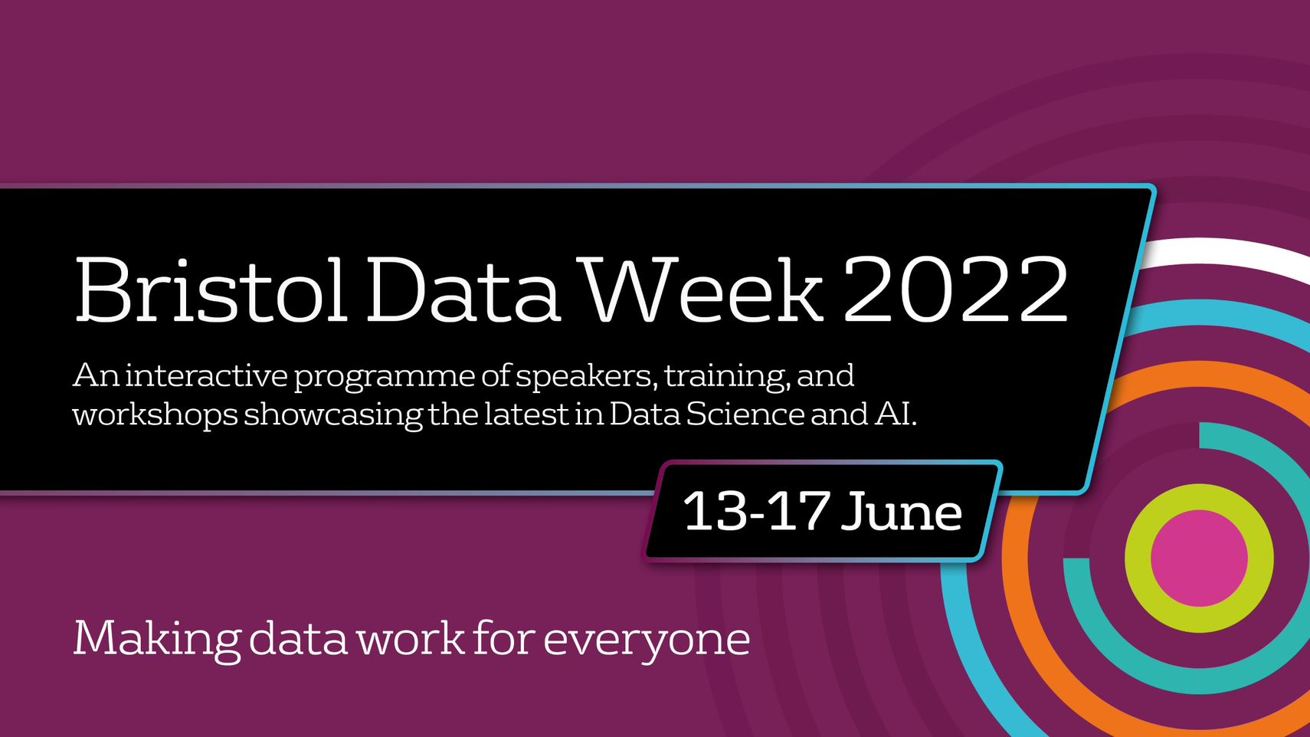We’re excited to announce a Digital Arts and Humanities special edition of the DataViz Interest Group being held in-person as part of Bristol Data Week, 12:00–1:30pm at St George’s Bristol. We have four talks illustrating the spectrum of activities in this fast-developing area of research.

Wednesday 15th June, 12:00–1:30pm
St George’s Bristol
Part of Bristol Data Week
Digital Security by Design and the Secret Life of Data
Genevieve Liveley
Professor of Classics, University of Bristol
When we think about the security of data on our phones and computers, we might think about passwords and permissions, or about data encryption – but we rarely think about what our data looks like, or what is does as it moves around hidden inside our phones, computers, digital devices, our apps and networks. This invisibility – this secret life of data – makes it difficult to communicate the benefits of innovations such as Digital Security by Design (DSbD) and to imagine futures where this paradigm shift in technology can be most beneficial. This presentation explores the value of creative storytelling as one way to explore the sociotechnical impacts of DSbD.

Genevieve is Professor of Classics, RISCS Fellow, and Turing Fellow at the University of Bristol. As a narratologist, she has particular research interests in stories and their impact on futures thinking – especially in the context of emerging technologies and cyber security. She leads the Futures strand for the UKRI’s Digital Security by Design (DSbD) Discribe Hub+ programme, and as RISCS Fellow, heads the ‘Anticipation and Futures Literacy’ research theme.
Mapping Intercultural Conversations
Jo Crow
Associate Professor in Latin American Studies, University of Bristol
The Mapping Intercultural Conversations project started in 2014, with a series of workshops involving many different people in Chile and the UK who wanted to share knowledge and ideas about Mapuche history, interculturalism, representation and self-representation, memory and digital culture. It centres around three prominent Mapuche leaders in early 20th century Chile, whose contested legacies live on to this day: Manuel Manquilef, Manuel Aburto Panguilef, and Venancio Coñuepán. We asked ourselves the questions: Why and how did these figures become the important political spokesmen that they did? Part of the answer lies in the vast web of connections that they built up over the years. The project webpage invites you to look into their complex social networks, and in turn serves as an entry point to a history of Mapuche political activism in Chile which challenges overly-simple identity categories.

Jo’s research interests include Chilean cultural history, nationalism and nation building, and Mapuche history, intellectuality and politics. Her new research project investigates the production of knowledge and circulation of ideas about race and indigenous cultures in twentieth century Latin America, focusing specifically on Chilean-Peruvian intellectual networks.
Corpus Creation in Digital Humanities: A Work in Progress
John David Vandevert
Postgraduate in Musicology, University of Bristol
When dealing with historiographical information and its contemporary development in Humanities research, it is well-known that a researcher must examine how “historical importance” and “historical truth” are being comprehended. But in Digital Humanities work, the requirement is greater, as leading any project is a subjectively-created corpus of aggregated data. Ergo, in the inescapably flawed process of “datafication,” how do researchers grapple with questions of ‘vantage point’ and epistemic authenticity? In this talk, I will introduce some early challenges regarding corpus creation in my digital project on contextualizing Russian Hip-Hop’s aesthetics and the need for a reexamination of how a corpus is created.

John is a postgraduate in the faculty of Musicology, currently studying Russian Hip-Hop, specifically Dmitry Kuzenstov’s 2020 album “Hoshkhonog”, to guage how the genre’s aesthetics embodies or negates the presence of the historically-defined quality of “musical Russianess.” His main interest lies in understanding how beliefs on national identity and cultural belonging, along with accumulated life experiences and personal ideologies present themselves in a composer’s musical vocabulary. He plans on pursuing Doctoral studies on the subject in the fall of this year.
Mapping American Socio-Commercial Networks
Thomas Larkin
Augustine Heard Fellow, University of Bristol
Mapping American Socio-Commercial Networks is a pilot digital humanities project intended to demonstrate the extent of networking and mobility between China and the West in the nineteenth century. Intended to draw together researchers from Bristol, Aix-Marseille, and Vancouver, the project catalogues foreigners, their networks, and their movements in nineteenth-century China using GIS and Social Network Analysis. The ultimate goal is to produce a user-friendly digital platform for visualising socio-commercial networks and transnational mobility. Aimed at researchers and students, the platform will both serve as a reference tool and address the need for alternative pedagogical approaches to teaching global history.

Thomas is an historian of China and the United States with particular interests in global-microhistorical and transimperial methodologies. His research engages broadly with themes related to culture, gender, race, and identity construction in colonial and (semi)colonial spaces.

